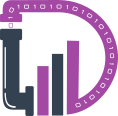In the dynamic landscape of philanthropy, the power of data analytics has emerged as a beacon of hope, propelling non-profit organisations toward unparalleled effectiveness and impact. As the digital age transforms the way we address societal challenges, the strategic utilisation of data becomes not merely an advantage but a necessity for those dedicated to making a difference. In this exploration of "Data Analytics for Non-profit Organisations," we embark on a journey into the heart of leveraging information to drive social change. From unlocking insights that amplify the efficiency of operations to harnessing the full potential of donor relationships, this article delves into the transformative role data analytics plays in empowering non-profits to fulfill their missions with greater precision and purpose. Join us as we uncover the untapped potential that lies at the intersection of data and altruism, forging a path towards a brighter, more impactful future for those committed to making the world a better place.
Harnessing Data Analytics for Non-Profit Organisations

Benefits of Data-Driven Decision-Making for Non-Profits
In the realm of non-profit endeavors, where every dollar and effort count toward creating positive change, the adoption of data analytics proves to be a game-changer. By harnessing the vast sea of data at their disposal, Organisations can gain profound insights into the needs of their communities, identify trends, and strategically allocate resources. This data-driven approach enables non-profits to move beyond gut instincts, ensuring that every initiative is not only well-intentioned but also strategically impactful. From targeting specific demographics with precision to predicting emerging societal challenges, data analytics becomes the guiding compass, steering non-profits toward informed and effective decision-making.
Turning Insights into Action
Understanding the power of data is one thing; transforming that understanding into actionable insights is another. Non-profits equipped with analytics tools can translate data into tangible strategies.
Data can help non-profit organisations in many ways, such as:
-
Improving their decision-making and problem-solving processes by using data analysis to identify patterns, opportunities, and challenges.
-
Enhancing their communication and storytelling skills by using data to quantify and convey their impact and value to their stakeholders, such as donors, sponsors, partners, and beneficiaries.
-
Optimizing their marketing and fundraising efforts by using data to target and segment their audiences, measure and evaluate their campaigns, and increase their donations and engagement.
-
Streamlining their operations and efficiency by using data to automate and simplify their tasks, monitor and report their progress, and reduce their costs and risks.
Some examples of data that non-profit organisations should collect and track are:
-
Donor data, such as contact information, donation history, preferences, and feedback, to strengthen donor relations and retention.
-
Campaign data, such as goals, strategies, outcomes, and metrics, to assess campaign performance and effectiveness.
-
Marketing data, such as website traffic, social media engagement, email open rates, and conversion rates, to understand and reach their audiences better.
-
Financial data, such as income, expenses, budget, and cash flow, to manage their resources and ensure their sustainability.
-
Website data, such as visitors, sessions, bounce rate, and time on page, to optimize their website design and functionality.
-
External data, such as demographic, economic, social, and environmental data, to understand their context and environment and adapt to changes
Navigating Challenges and Seizing Opportunities
Undoubtedly, integrating data analytics into the fabric of non-profit organisations comes with its challenges. From concerns about data privacy to the initial learning curve, the journey demands dedication. However, the opportunities for greater impact and sustainability far outweigh the challenges.
Some challenges of using data in non-profits are:
-
Time and staff capacity: Non-profits often lack the time and staff resources to collect, manage, analyze, and use data effectively. Data-related tasks may be seen as a diversion from the core mission of delivering products or services.
-
Data quality and reliability: Non-profits may face difficulties in ensuring the quality and reliability of the data they collect, especially if they use multiple platforms and applications that do not integrate well with each other. Data may be incomplete, inconsistent, outdated, or inaccurate.
-
Data analysis and interpretation: Non-profits may lack the expertise and skills to analyze and interpret data using various statistical and machine learning techniques. Data analysis may require specialized software and tools that are costly or inaccessible. Data interpretation may also involve ethical and legal issues, such as privacy, consent, and bias.
-
Data communication and storytelling: Non-profits may struggle to communicate and present their data in a clear and compelling way to their stakeholders, such as donors, sponsors, partners, and beneficiaries. Data communication may require engaging and interactive data visualizations, such as charts, graphs, maps, and dashboards. Data storytelling may also require narratives, visuals, and emotions to convey the message and influence the audience.
Implementing Data Analytics Tools and Strategies
While the benefits of data analytics for non-profits are clear, the journey towards implementation may seem daunting. However, with the right tools and strategies, organisations can embark on this transformative path with confidence.
-
Choosing the Right Analytics Tools: Selecting user-friendly analytics tools that align with the specific needs of non-profits is crucial. Whether it's Google Analytics for website performance, customer relationship management (CRM) systems for donor management, or more specialized tools for program evaluation, each choice should serve the organisation's unique mission.
-
Aligning data with mission and strategy: Non-profits can align their data collection and analysis with their mission and strategy, such as defining their theory of change, logic model, and key performance indicators. They can also prioritize the data that are most relevant and useful for their decision-making and problem-solving processes
-
Building Data Literacy: Empowering staff and stakeholders with data literacy is a key component of successful implementation. Training programs that foster an understanding of data collection, interpretation, and application are invaluable for ensuring everyone within the organisation is on board and capable of leveraging analytics effectively.
-
Collaborative Data Culture: Establishing a collaborative data culture within the organisation is pivotal. When everyone from program managers to fundraisers understands and values the role of data, it becomes a shared language that enhances decision-making across all departments.
Non-profit entities have the opportunity to harness the advantages provided by our pro bono consulting services. Further details can be accessed through the following link.
Are you a forward-thinking not-for-profit organisation? Are you Ready to transform?
Speak to a DATA LEAGUE expert today and let's embark on a data-driven journey that will elevate your organisation. As we navigate this landscape together, armed with insights and fueled by a shared commitment to change, you can harness the full potential of data analytics. In doing so, you not only adapt to the demands of our digital age but also elevate your capacity to make a lasting difference in the world. Join us on this transformative voyage where data and compassion converge, charting a course for a future where every positive intention is met with calculated, meaningful impact.

